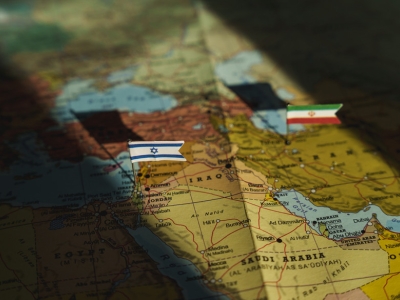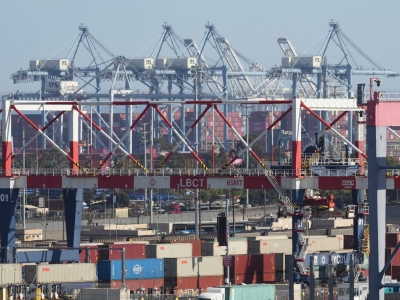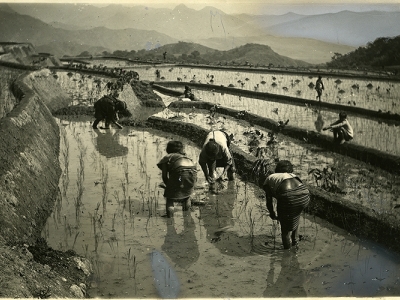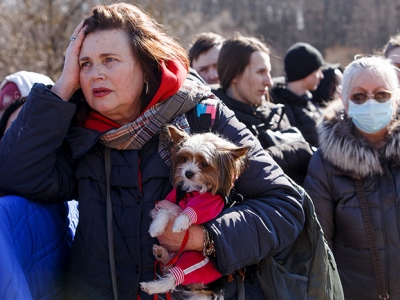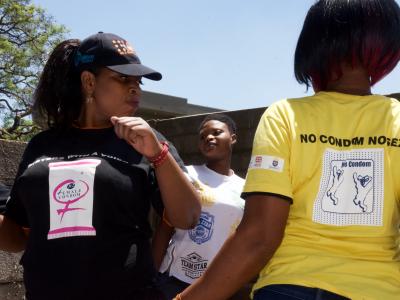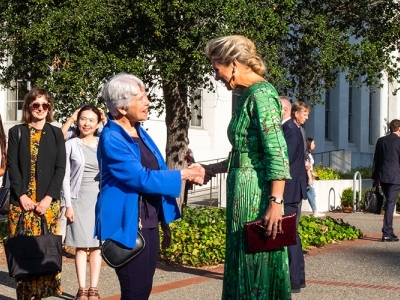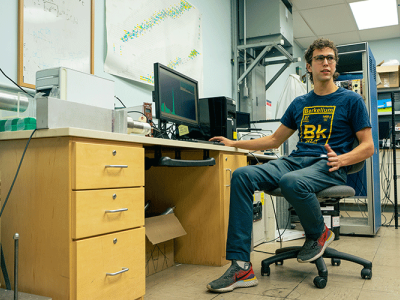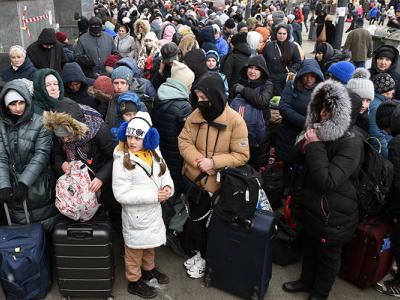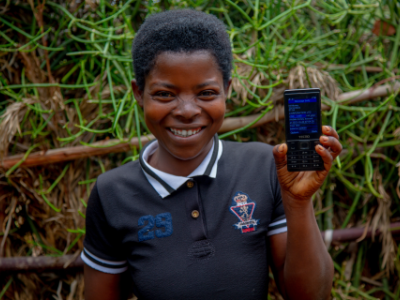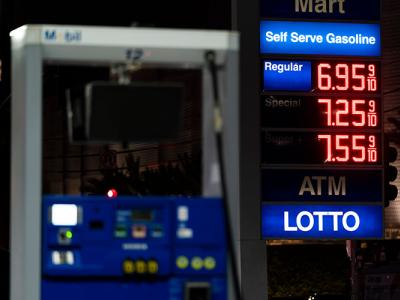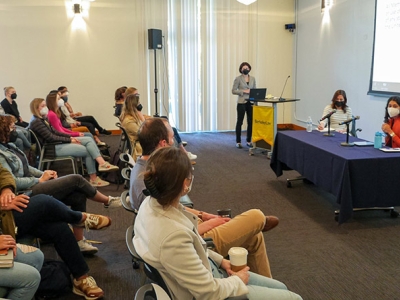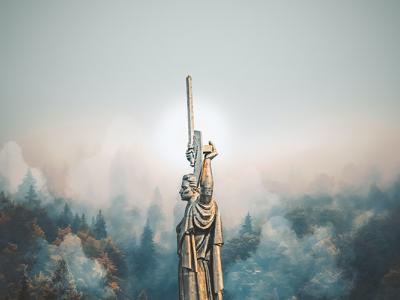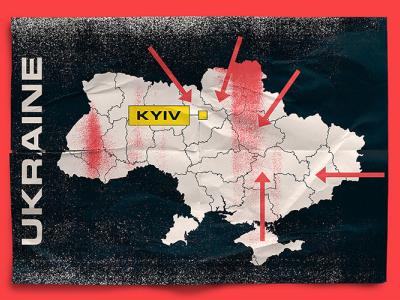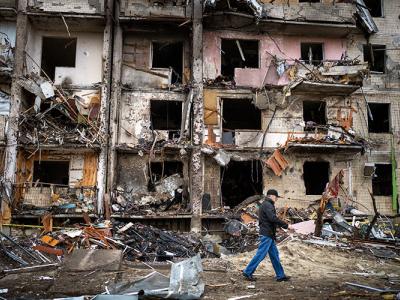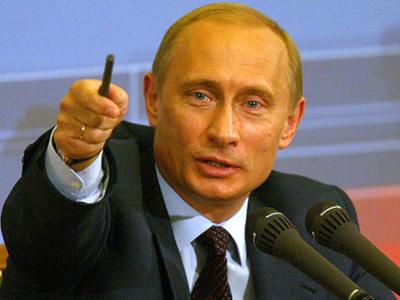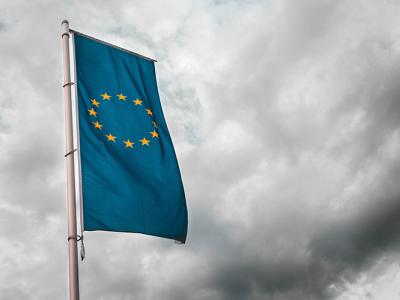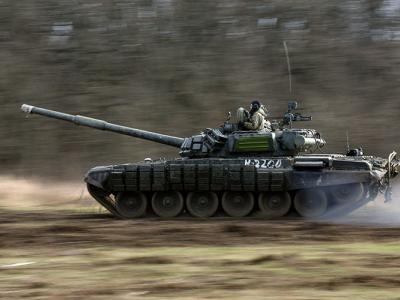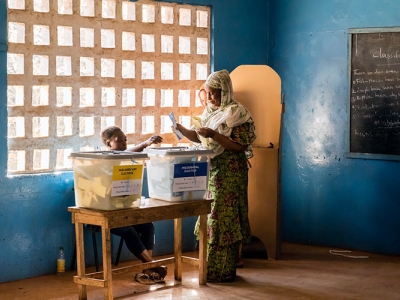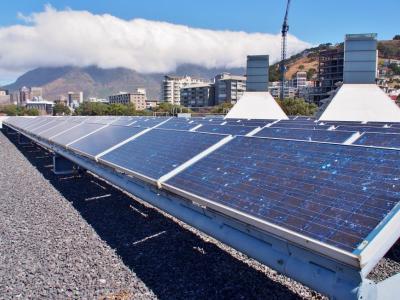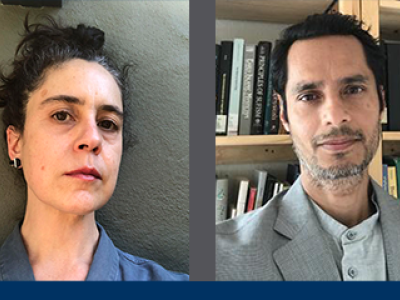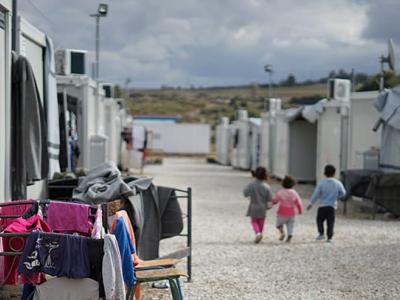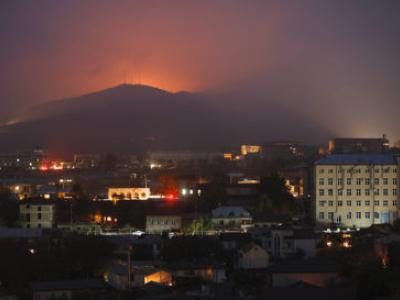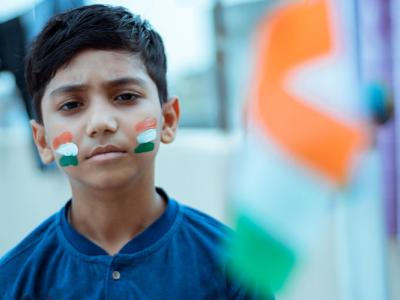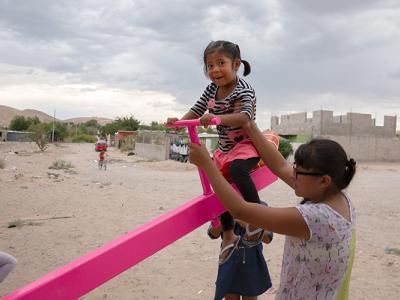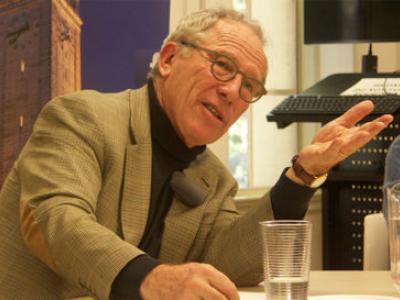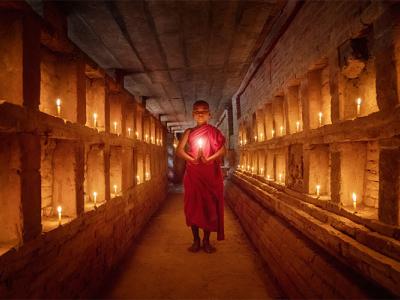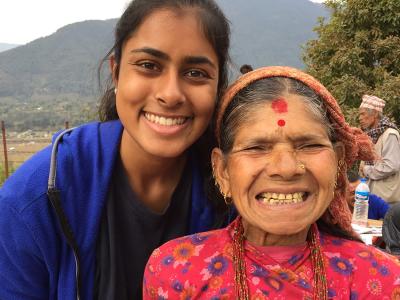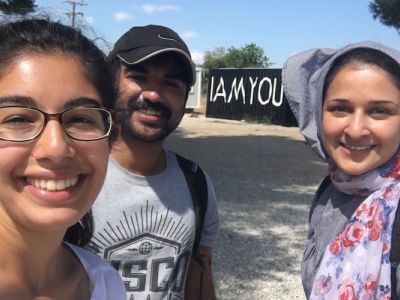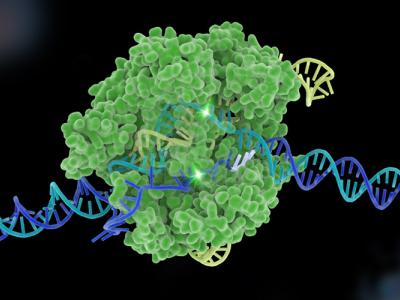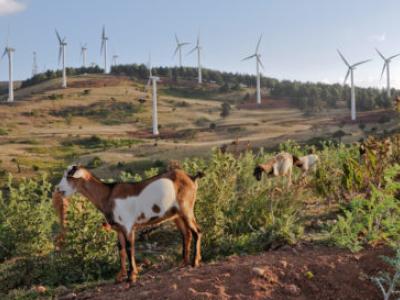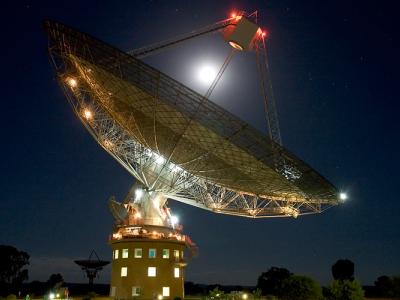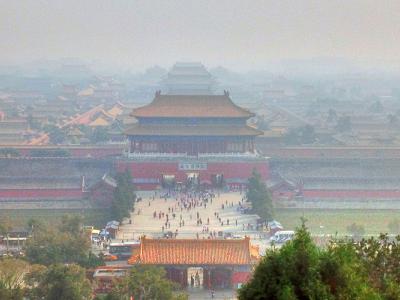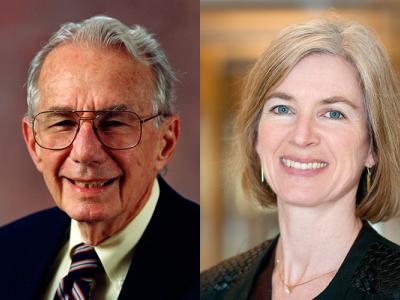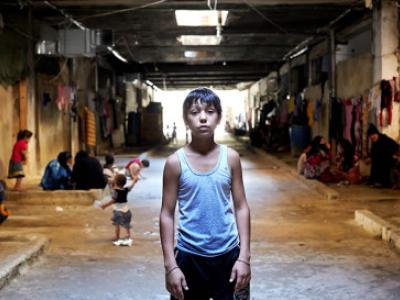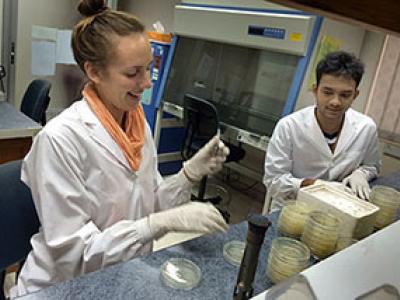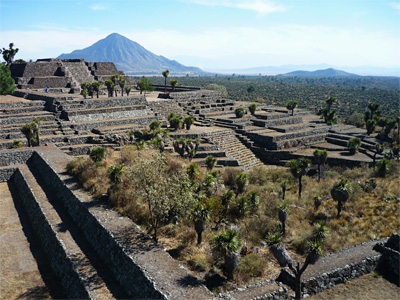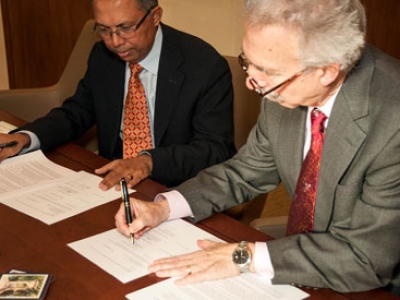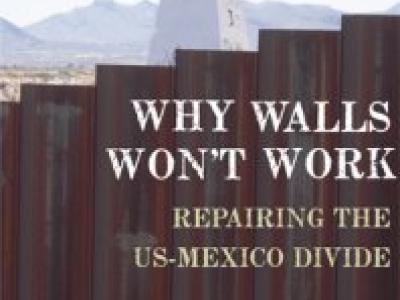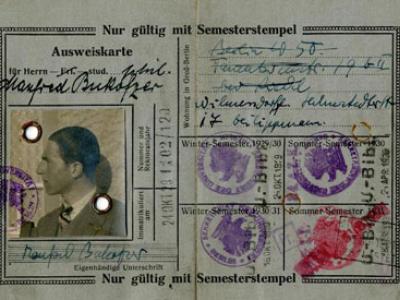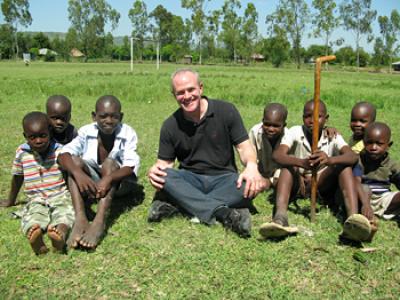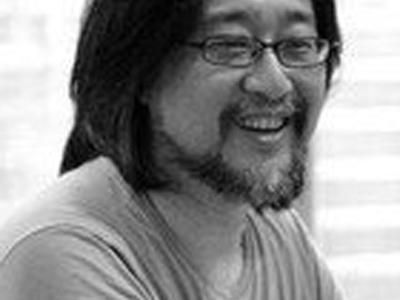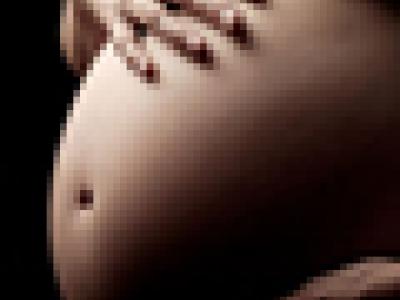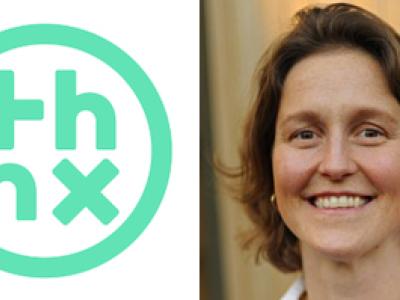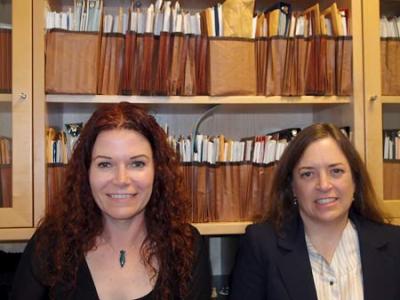Trade Policies Unraveled: Q&A With Economist Matilde Bombardini
Why Are There So Many People From the Philippines in Hawaii? Colonialism.
As Refugees Surge, European Voters Show ‘Resilient’ Support, Study Finds
Advising Germany
UC Berkeley School of Public Health Receives NIH Grant for HIV Prevention in Zimbabwe
The Netherlands’ Queen Visits UC Berkeley, Global Research Network Announced
UC Berkeley Engineers Send Equipment, Expertise to Ransacked Chernobyl
A Month at War: Berkeley’s Ukrainian Students Turn Shock, Anger Into Action
Mobile Phone Data and Machine Learning Helped Togo Government Provide Assistance
Russia’s Attack: Ukraine War Turns Into a Perilous Global Economic Conflict
As the World Watches Ukraine, Berkeley Law Experts Discuss Recent Events and What to Expect
Berkeley Talks: UC Berkeley Experts on the Invasion of Ukraine
With Defiance and Solidarity, Berkeley’s Ukrainian Scholars Respond to Invasion
For Berkeley Scientist Polina Lishko, a Time of Sadness and Anger for Ukraine
Putin’s War and Its Economic and Geopolitical Realities
Berkeley Talks: The EU in Crisis
Could Ukraine Be a Tombstone for Russian Power? Or for the Western Alliance?
Nobel Laureate David Card Believes Scholars Need a Global Perspective
A Bold Berkeley Program Is Improving Human Lives in Low-Income Countries
The Transformation of Africa’s Energy Sector
New leadership in CLAS and CMES
Faculty Members Share Research Findings and Insights Leading Into World Refugee Day
How Satellite Images Are Helping One Country Hand Out Cash
Why violence has re-emerged in Armenia-Azerbaijan conflict
Hindu kids more apt to echo propaganda that ‘Indian equals Hindu’
Teeter totters as activism: How the border wall became a playground
Hindu and Muslim children show unexpected religious tolerance
History professor’s ‘Work of the Dead’ wins 2018 Shannon Prize
Berkeley part of new international Buddhist Studies network
A research experience to smile about
On the ground in Greece, students test tech to help refugees
European Patent Office to grant UC a broad patent on CRISPR-Cas9
Renewable energy has robust future in much of Africa
Researchers unveil new initiative on human migration
Berkeley SETI turns Australian telescope on nearest exoplanet to Earth
To improve Beijing’s air quality, cut household fuel use too
China’s plans to curb Beijing’s health-damaging air pollution by focusing on restricting emissions from power plants and vehicles may have limited impact if household use of coal and other dirty fuels is not also curtailed, according to a new study.
Taiwan’s Tang Prizes awarded to Doudna, Rosenfeld
Taiwan’s top science award, the Tang Prize, has gone to two UC Berkeley scientists well-known in the fields of biochemistry and physics: Jennifer Doudna, for her invention of CRISPR-Cas9 gene editing, and Arthur Rosenfeld, often called the “godfather of energy efficiency.”
The case for accepting more, not fewer, Syrian refugees
Kate Jastram, an attorney and UC Berkeley expert in forced migrations, says closing U.S. doors to Syrian refugees would deepen America’s anti-Muslim reputation and alienate the 3.3 millions Muslims already living here.
UC Berkeley first university to house a center for Bangladesh studies
The first university-housed center for Bangladesh studies officially opens at UC Berkeley on March 30 with Chancellor Nicholas Dirks presiding over an invitation-only ribbon-cutting ceremony followed by a talk by Sir Fazle Abed, founder and CEO of BRAC, one of the world’s largest NGOs.
Long dry spell doomed Mexican city 1,000 years ago
The former city and now archaeological site called Cantona in the highlands east of Mexico City appears to have been abandoned nearly 1,000 years ago as a result of a prolonged dry spell that lasted about 650 years, according to a new study.
Bangladesh takes center stage with Subir and Malini Chowdhury Center
Bangladesh may be known mostly for its poverty, environmental vulnerability and deadly factory fires, but the new Subir and Malini Chowdhury Center for Bangladesh Studies at the University of California, Berkeley, is ready to prove that this South Asian country of over 160 million people has a lot more to teach the rest of the world.
Michael Dear Receives AAG Global Book Award
Michael Dear’s Why Walls Won’t Work: Repairing the US–Mexico Divide, published by Oxford University Press, has been selected by the Globe Book Award Committee to receive the 2013 Association of American Geographers Globe Book Award for Public Understanding of Geography.
Magnes exhibition explores intellectual migration
Launch of antimalarial drug a triumph for UC Berkeley, synthetic biology
Twelve years after a breakthrough discovery in his University of California, Berkeley, laboratory, professor of chemical engineering Jay Keasling is seeing his dream come true.
New AIDS research uses models to see through lies about sex, inform HIV policy
The increasingly couples-focused public-health policy for AIDS prevention in sub-Saharan Africa underestimates the role that cheating spouses play in transmitting the virus, according to a new study from the University of California, Berkeley.
Playwright/alum Stan Lai to discuss creativity, theater
Stan Lai, considered the leading playwright/director in Asia and one of the region’s most prolific, is taking a break from his hectic schedule and heading back to his alma mater, the University of California, Berkeley, for a series of public talks and workshops about his own artistic practice and the state of modern theater.
Berkeley Law Launches Center on Reproductive Rights and Justice
On the eve of the 40-year anniversary of Roe v. Wade, UC Berkeley School of Law today announced the formal launch of its new Center on Reproductive Rights and Justice (CRRJ). It is one of the first research centers to study the legal, economic, and social impact of reproductive laws on women, families, and communities.
Thnx4.org goes live to both teach and research the power of gratitude
UC Berkeley’s Greater Good Science Center is providing an easy way to give thanks and, at the same time, contribute to a national research project on the power of gratitude

